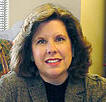FCC Adopts Report and Order Allocating More
Spectrum for Unlicensed Devices
November 13, 2003. The Federal Communications Commission (FCC) announced, but did not release, a Report and Order to provide an additional 255 MHz of spectrum for unlicensed wireless devices operating in the 5 GHz region. The FCC issued only a short press release [2 pages in PDF] summarizing its action.
The main use of this spectrum will likely be 802.11 (Wi-Fi) and Bluetooth devices. The additional spectrum will be in the 5.470-5.725 GHz band. It would be available for use by unlicensed National Information Infrastructure (U-NII) devices, including Radio Local Area Networks (RLANs), operating under Part 15 of the FCC's rules.
Currently, there is a total of 300 megahertz of spectrum allocated for U-NII devices, in the 5.150-5.250 GHz, 5.250-5.350 GHz and 5.725-5.825 GHz bands.
The FCC release states that "The additional available spectrum for U-NII devices will enable continued growth and innovation in wireless broadband services, including services offered by wireless internet service providers (WISPs). WISPs use unlicensed devices to provide a broadband alternative for rural and underserved areas. Although they are a relatively nascent industry, their deployment rates have been increasing rapidly."
While the release states that this addition spectrum will benefit "broadband", nothing in the release, or the separate statements of Commissioners, states that use of this spectrum is restricted to broadband.
 Commissioner
Kathleen Abernathy (at
right) wrote in a
separate
statement [PDF] that this "spectrum that has the potential to be used for
broadband networks".
Commissioner
Kathleen Abernathy (at
right) wrote in a
separate
statement [PDF] that this "spectrum that has the potential to be used for
broadband networks".
She continued that "the true key to achieving Congress's objective of a deregulatory and procompetitive framework lies in moving beyond duopoly towards a world where multiple facilities-based providers compete in the broadband arena. Last week’s Rural WISP forum demonstrates that unlicensed wireless technology is tremendously valuable in promoting the core statutory goals of broadband deployment and facilities-based competition."
Chairman Michael Powell wrote in a separate statement [PDF] that "Wireless broadband is increasingly a reality in the marketplace. As demonstrated by our recent WISP forum, making more spectrum available for this important application will foster facilities based broadband competition and significantly advance the public interest. Moreover, additional unlicensed spectrum was a key recommendation of the Spectrum Policy Task Force. Today we deliver on the promise."
On May 15, 2003, the FCC announced its NPRM. See, story titled "FCC Adopts NPRM to Increase Unlicensed Spectrum" in TLJ Daily E-Mail Alert No. 663, May 16, 2003.
On June 4, 2003, the FCC released the text of this NPRM [28 pages in PDF]. See, story titled "FCC Releases NPRM Regarding Increasing Amount of Unlicensed Spectrum" in TLJ Daily E-Mail Alert No. 674, June 5, 2003. The FCC published a notice in the Federal Register on July 25, 2003 (Vol. 68, No. 143, at Pages 44011 - 44020) describing this NPRM and setting comment deadlines.
Representatives and Senators also introduced legislation early this year to require that the FCC allocate more spectrum for unlicensed uses. See, stories titled "FCC Unlicensed Spectrum NPRM and the Jumpstart Broadband Act" in TLJ Daily E-Mail Alert No. 663, May 16, 2003; and "Sen. Boxer and Sen. Allen Introduce WiFi Spectrum Bill", in TLJ Daily E-Mail Alert No. 586, January 20, 2003.
Also, the WRC-03 conference in Geneva, Switzerland from June 9 through July 4, 2003 adopted a resolution pertaining to spectrum for unlicensed devices. It provides "that this Conference has allocated the bands 5 150-5 350 MHz and 5 470-5 725 MHz on a primary basis to the mobile service for the implementation of wireless access systems (WAS), including radio local area networks (RLANs)". See also, story titled "Delegates Discuss World Radiocommunications Conference" in TLJ Daily E-Mail Alert No. 703, July 22, 2003. This Report and Order harmonizes spectrum use for U-NII devices internationally.
Craig Mundie, a SVP at Microsoft, stated in a release that "Coming only four months after the World Radiocommunication Conference harmonized this spectrum globally, the FCC's action reflects the potential for Wi-Fi and other radio LAN technologies to deliver broadband communications in geographies where broadband is currently unavailable, and will encourage the development of ever-more innovative products and services for businesses and consumers."
This is FCC 03-287 in ET Docket No. 03-122. The FCC adopted this item on November 12.